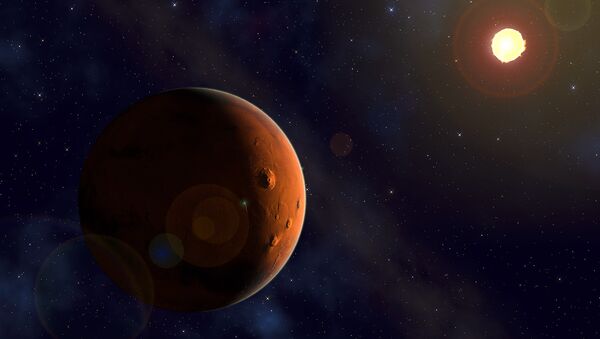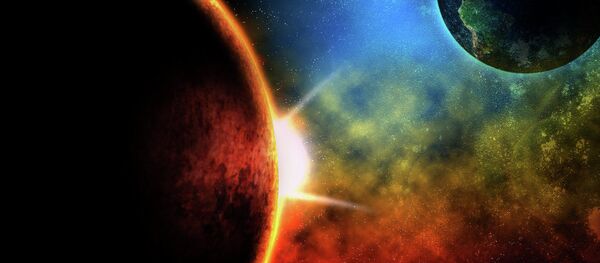Commenting on the recent discovery of water on the surface of Mars, Musk said this breakthrough has fueled his ambitions to continue work on the planet’s exploration, with a further goal to colonize the planet.
Mars water: How Lunar Mission One can help unlock its potential — David Iron blogs. http://t.co/jif1PaBw03 pic.twitter.com/UgUNVbysQ2
— HuffPostUKTech (@HuffPostUKTech) October 2, 2015
But before that, climate change on Mars is badly needed, he says.
Elon Musk elaborates on his proposal to nuke Mars http://t.co/fUrU8pYZi3 pic.twitter.com/JiowNtmVIH
— The Verge (@verge) October 2, 2015
According to Musk, making the Red Planet livable for human beings is impossible without warming its surface temperature up. And to heat Mars up, he explained, it’s essential to fire two scorching suns above both poles of the planet. He pointed out that those nuclear blasts are needed for the creation of two dwarf stars similar to the sun, which would rapidly heat the planet’s atmosphere.
"[Nuclear blasts] would gasify frozen carbon dioxide, thicken the atmosphere and warm up the water and all of that would have a greenhouse effect and have a cascading effect to continue warming up the planet," he told Mashable.
The businessman concluded that the technology that would allow for the creation of such blasts has yet to be developed. Lack of heat and ready sources of liquid water aren't the only factors which would make Mars inhospitable for most terrestrial life. Google cites Space.com as saying that the Martian atmosphere is 100 times thinner than that of Earth and 95.32 percent composed of Carbon Dioxide. Earth's own atmosphere is 78 percent nitrogen, 21 percent oxygen, and 1 percent other gasses. Although the temperature on Mars averages minus 55 degrees Celsius (-67 degrees Fahrenheit), at the equator during the daytime, temperatures can range as high as 27 degrees Celsius (80 degrees Fahrenheit).


